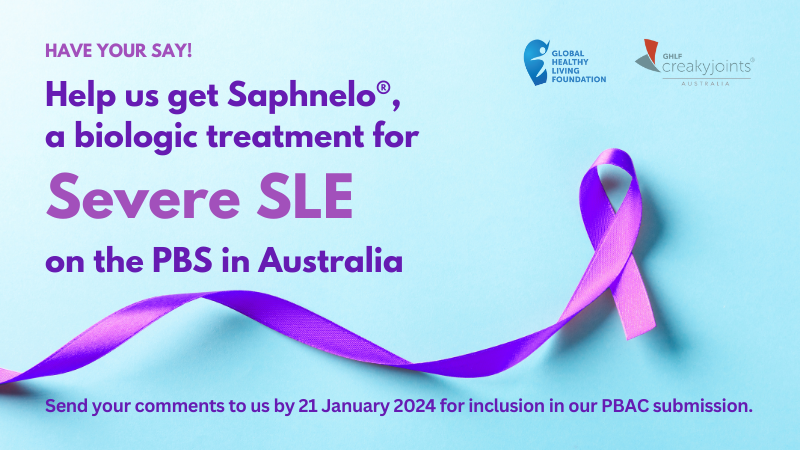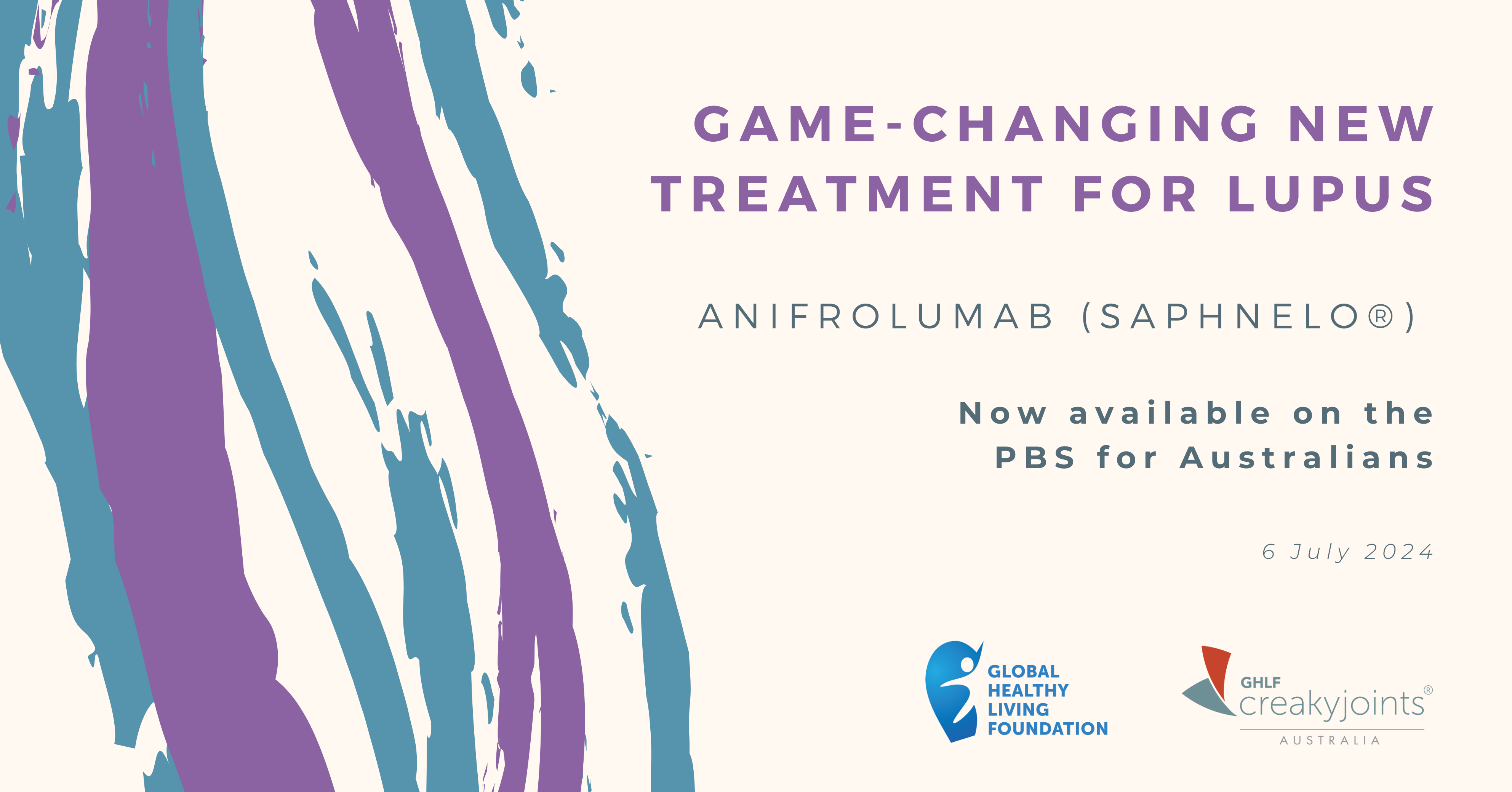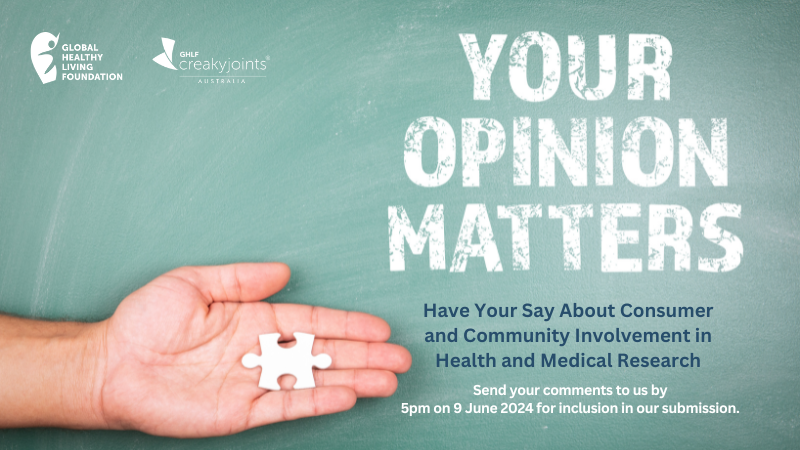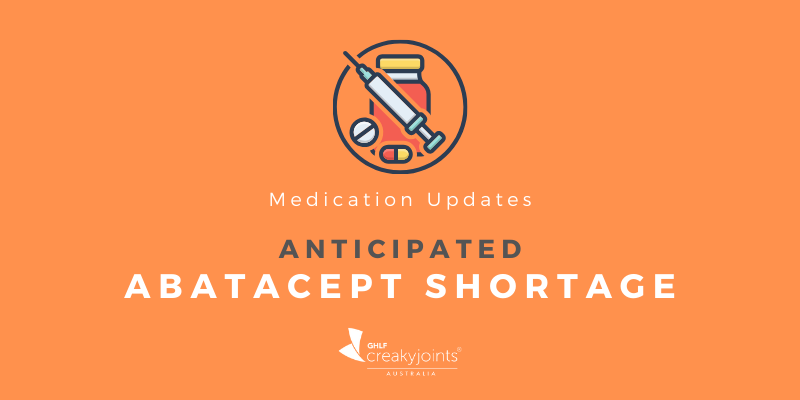

Biologic medications have been an effective way to treat severe cases of many autoimmune diseases for several decades. They have been game-changers for people with conditions such as rheumatoid arthritis, psoriasis and multiple sclerosis as they help to reduce symptoms and allow users to enjoy a better quality of life. They are also heavily subsidised through the Pharmaceutical Benefits Scheme (PBS) so they cost users no more than $30 per month.
Anifrolumab is one of two biologic medications for severe systemic lupus erythematosus (SLE or lupus) approved for use in Australia by the Therapeutic Goods Administration (TGA). However, neither medication is currently subsidised through the PBS. That means they can be prescribed but users need to pay full price for them at pharmacies. Based on the unsubsidised cost of other biologic medicines, they could cost users between $800 and $1,500 per month.
Standard oral therapies are available for people with SLE through the PBS. These generally work for people with less severe SLE but they are not as effective for those with severe cases of the condition.
Anifrolumab (Saphnelo®) is currently being considered for subsidy through the PBS for those with severe SLE with a high level of disease activity despite standard therapy and we need your help to get it approved.
What is SLE?
Lupus is an autoimmune disease, which means the body’s immune system mistakenly attacks healthy tissue and organs. This leads to long-term inflammation, swelling, pain and damage that can affect many different body systems, including the heart, lungs, brain, kidneys, joints and skin. SLE is one of several forms of lupus.
While the exact cause is not known, it is believed that it results from a mix of genetics and the person’s environment. Experts believe that people with a genetic predisposition to the disease may develop lupus when something in their environment triggers it. Triggers include certain medicines (particularly anti-seizure, blood pressure and antibiotic medications), certain chemicals, tobacco smoke, infections and sun exposure.
As with other autoimmune conditions, early diagnosis is important as early treatment helps to slow disease progression and improve quality of life. However, SLE is tricky to diagnose because its symptoms are similar to those of other diseases, including periods of illness or “flares” and periods of feeling fine or “remission.” It is also difficult to treat as it has a wide range of symptoms, people have different triggers and combinations of symptoms and symptoms can range from mild to severe.
It is estimated that more than 20,000 Australians live with SLE. More than 90 per cent of people with SLE are women, mostly young women who are generally diagnosed between the ages of 15 to 45.
What is Anifrolumab?
Autoimmune diseases occur when the immune system mistakenly treats healthy cells as though they were viruses or other forms of infection. Oral disease-modifying antirheumatic drugs (DMARDs) work by suppressing the activity of the whole immune system. Biologic DMARDs (bDMARDs) target specific parts of the immune system involved in related autoimmune conditions. Anifrolumab targets and suppresses only the immune cells involved in causing SLE.
Why We Want to See Anifrolumab Subsidised Through the PBS
The Pharmaceutical Benefits Advisory Committee (PBAC) is the body responsible for deciding which treatments are subsidised by the Australian Government through the PBS. The PBAC has previously acknowledged the need for those with SLE to have access to a suitable bDMARD and that anifrolumab can help people with the condition. However, they concluded that, due to the vast range of symptoms experienced by people with SLE, anifrolumab might not benefit enough of the population to justify subsidising the medication for everyone with SLE.
The Pharmaceutical Benefits Advisory Committee (PBAC) will be meeting in March to decide whether or not to make anifrolumab available through the PBS. They will consider any new information provided by the pharmaceutical supplier and all submissions they receive from professionals and the general public.
We believe that, even if anifrolumab does not work for everyone, there will still be many people that it does work for and those people deserve access to the best treatment possible, just as those with other autoimmune conditions do. Therefore, we strongly urge the PBAC to agree to allow anifrolumab to be subsidised through the PBS as soon as possible.
What We’d Like You to Do
The PBAC welcomes submissions from patients, carers, health professionals, consumer groups or organisations and members of the public on medicines submitted for PBAC consideration.
CreakyJoints Australia would like to collate your comments into a single submission and send it to the PBAC on your behalf. Your comments can respond to any or all of the following questions:
- For those with SLE, tell us how SLE affects your life. Try to be as specific as possible including impacts on everyday activities, school, family, friends, and mental and emotional health.
- If you already use anifrolumab, how has it helped you and how has the cost of treatment affected you financially and socially?
- For those who use bDMARDs for other autoimmune conditions, tell us how they have made a difference to your health and quality of life.
- For everyone, what do you see as the advantages of this proposed medicine? For example, what impact could it have on the lives of people with SLE?
- What do you see as the main disadvantages of this proposed medicine?
You are welcome to provide any additional comments you would like the PBAC to consider.
How to Submit Your Comments to Us
Please send your responses to us by:
- Typing your comments into a Word document and attaching that to your email OR
- Typing your comments directly into your email.
Your comments can be as simple as a few bullet points or as long as two or three paragraphs.
Please email your comments to Rosemary Ainley at rainley@creakyjoints.org.au no later than 5 pm on Sunday 21 January 2024.
We will collate your replies into a single submission and send it to the PBAC on your behalf.
If you wish to make your own submission directly to the PBAC you can do so by going to https://ohta-consultations.health.gov.au/ohta/pbac-march-2024/
Kind regards,
The CreakyJoints Australia team
Keep Reading
- Arthritis Types
- Arthritis Treatments
- Patient PrepRheum podcast
- Patient Stories
- Government Support for People With Chronic Conditions
Source
Lupus WA — About Lupus/Overview: https://www.lupuswa.com.au/about-lupus/#:~:text=Lupus%20is%20a%20chronic%2C%20complex,more%20than%2020%20000%20Australians.




